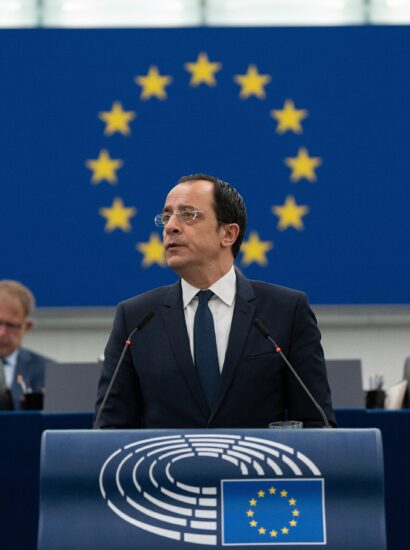Once a source of hope and ambition for the right in Spain, Vox’s popularity and ability to define the political agenda has declined. What are the main reasons behind this and how is Spain’s definitive party on the new conservative side looking before the European elections allegedly bringing the European conservative forces closer to being a defining force? Because in the European elections VOX seems to be a force to be reckoned with.
Spanish right-wing party Vox emerged in 2014 to change the bipartisanship that existed in Spain and bring issues of debate to the forefront that traditional parties had not spoken, or had spoken relatively little about.
The first big leap Vox had on the political scene were the trials against pro-independence politicians who had held an illegal referendum in Catalonia on the independence of the territory and subsequently unilaterally declaring Catalonia as an independent state. Vox presented itself to demonstrate, in part, the illegality that Catalan politicians had committed and, in turn, Vox’s staunch defence of the protection of national unity. Likewise, their final “catapultation” came with the 2018 Andalusian elections, where they entered a regional parliament for the first time with 12 seats and 10.96 percent of the vote.
Later, in the 2019 general elections they would get 24 seats with 10.26 percent of the votes, although there was an electoral repetition and that was the key point to consolidate, since in the second general elections they got 52 deputies with 15.08 percent of the votes. Later, in the corresponding general elections, they obtained coalition governments, such as those of Castilla y León, Extremadura, Aragón and Valencia. However, in the last general elections Vox fell, obtaining 33 deputies and 12.38 percent of the votes.
Factors For Decline: Forgetting About Defining Issues
First of all, one of the main reasons has been their lack of interventions in the mainstream media and in the Spanish center-right media. After all, despite the fact that Vox has a strong presence in social networks and that is one of its greatest strengths, the majority of the Spanish population continues to watch television, listen to the radio and read traditional mediums, although this is decreasing year by year, but at the moment it is how the majority of Spaniards end up being informed.
The party has also been criticized for having neglected the economy, despite the fact that in the campaign they had one of the best economists and politicians in the Congress of Deputies, Iván Espinosa de los Monteros, but it is true that they did not focus excessively on the economy and put the focus on “the cultural battle”, which is quite important, but many Spaniards vote thinking about their pockets and that took its toll. Also, not including people with a classical liberal ideology (such as Rubén Manso) and less “nationalist” on the lists or having them in lower numbers also caused them to be put in the spotlight as not very liberal economically and as a more protectionist party. However, the Popular Party (PP from now on) did this and it did not take such a toll on them.
Likewise, abortion is another of the big issues that Spanish society has normalized and that can hardly be discussed and debated to change any fundamental aspect of abortion. In fact, these same issues have been sacrificed by the Rassemblement National, Marine Le Pen’s party in France. We saw this a few months ago when Le Pen’s party voted in favor of establishing abortion as a fundamental right in France, something that did not sit very well in the conservative sector and was widely criticized. Also, another statistic that plays in favor of Le Pen in France is the fact that many homosexuals and LGBT people have voted and will vote for Le Pen in France, as they believe that she has the right message, as they believe that Muslims pose a greater threat to their existence.
Vox’s Strengths: Own Issues on the Political Agenda and its International Relations
First of all, Vox has been able to bring issues to the political agenda that no other party had done and that in politics is fundamental and important, that is, to make other parties talk about your measure.
Secondly, the international relations that Vox has garnered are worthy of admiration.
We have seen these international relations at the CPAC in Washington, the CPAC Hungary and the recent Vox event called “VIVA 24.” At the Vox event there was another key figure, Israeli Minister of Diaspora Affairs and Combating Anti-Semitism Amichai Chikli, a very relevant figure in international politics, although some conservatives have criticized Chikli’s attendance at the event.
VOX Before the European Elections
“We believe that the strength of the conservative and sovereigntist groups would be essential to force the EPP to break that terrible alliance it has had with the left for so long,” said Abascal.
VOX: Here to Stay
“The Popular Party has dreams about the disappearance of Vox, which it directs to the PP and all the media and for which its finances have been dedicated to, I do not know if on 10 or 12 occasions. In all elections we witness the same story, which is destroyed in the votes. Vox can go up, it can go down, but Vox is not going to disappear”, said Abascal.










[…] the far right in Spain can also celebrate: the Vox party, led by Santiago Abascal, won six seats instead of four. The far-right influencer Luis […]